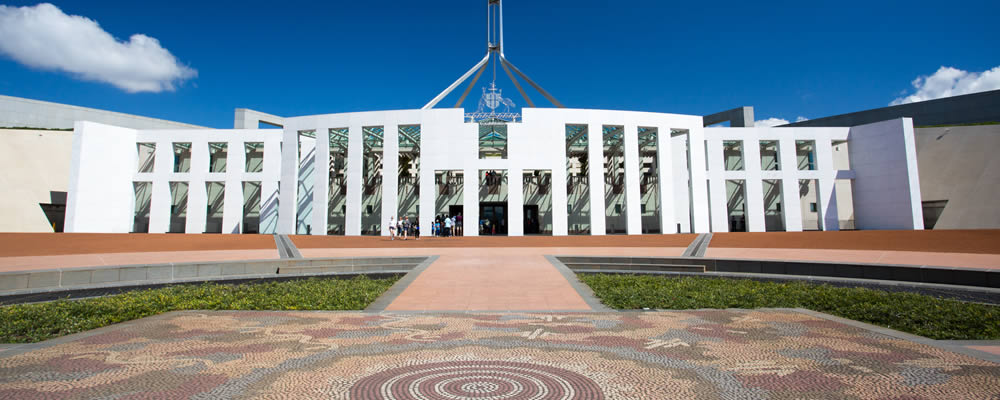Euro to Australian Dollar Exchange Rate on Track to Sustain Major Gains This Week
Political uncertainty in Australia undermined the Australian Dollar (AUD) last week, allowing a stronger Euro (EUR) to easily capitalise. The Euro to Australian Dollar (EUR/AUD) exchange rate is on track to end the week near its best levels in over three months.
After opening the week at the level of 1.5642, EUR/AUD surged and touched 1.5938 – its best level since early May – during Friday’s Asian session.
At the time of writing during the European session, EUR/AUD trended in the region of 1.5875. This was still over two cents higher than the week’s opening levels.
As well as political fears knocking the Australian Dollar, the Euro was able to capitalise on weakness in its rival, the US Dollar (USD).
A weaker US Dollar and political uncertainties weakening the ‘Aussie’ made the environment just right for the Euro to Australian Dollar exchange rate to see its best week of gains in quite some time.
Euro (EUR) Exchange Rates Benefit from US Dollar (USD) Weakness
Despite a lack of particularly strong Eurozone data or Eurozone news in the past week, the Euro was able to surge against the Australian Dollar.
This was largely due to weakness in the US Dollar (USD). The Euro is the US Dollar’s biggest rival, and the two currencies have something of a negative correlation.
As the US Dollar’s long bullish streak came to an end amid political and monetary policy uncertainties in the US, the investors selling the US Dollar bought the Euro instead.
Investors were still relatively hesitant to take risks too amid global trade jitters, making the Euro even more appealing compared to the relatively risky trade-correlated Australian Dollar.
Friday’s German Gross Domestic Product (GDP) growth results from Q2 met expectations and Thursday’s Eurozone PMI projections were mixed, so data has had little impact on the Euro outlook this week.
Australian Dollar (AUD) Edges Away from Worst Levels as New Australian Prime Minister Decided
Internal fissures in Australia’s ruling coalition government undermined the Australian Dollar last week, but the Australian Dollar recovered from its worst levels on Friday when a new Prime Minister came into power.
Australia’s ex-Prime Minister, Malcolm Turnbull, failed to fight off a second leadership challenge and on Friday was ousted. His replacement, ex-Treasurer Scott Morrison, was viewed more positively by markets than some other potential candidates.
As Morrison was seen as being relatively market positive, the Australian Dollar strengthened on Friday. However, EUR/AUD remained far higher on the week overall as Australia’s political worries were far from being over.
According to Paul Dales, Chief Economist at Capital Economics Sydney:
‘The political chaos…has increased the downside risks to the Australian dollar for both this year and next. The real issue is not who is going to be prime minister for the next few months, but who is going to be in the top job after the next election.’
Analysts reckon that if fissures remain within the coalition, there is a stronger chance that there will be a change of government following 2019’s election. This uncertainty is keeping pressure on the Australian Dollar.
Euro to Australian Dollar (EUR/AUD) Forecast: Australian Politics and Eurozone Inflation in Focus
As the Euro to Australian Dollar exchange rate was driven more by political developments than economic news last week, remaining uncertainties means that is likely to continue into next week too.
A quiet Australian economic calendar in particular means that the Australian Dollar is more likely to be driven by political news and strength in rivals than the Australian data.
Australian home sales and building permits could be slightly influential in the middle of the week though.
Generally, the Australian Dollar’s potential for gains is limited as Australian data has been mixed, US-China trade tensions persist and Australian political jitters are not expected to lighten significantly.
Signs that Australia’s government is still dealing with infighting would leave the Australian Dollar weaker, but if political jitters cool at all the ‘Aussie’ may recover more.
As for the Euro, it could continue to be influenced by US Dollar (USD) strength next week but upcoming key Eurozone data is likely to be influential too.
Confidence data will be published throughout the week, with German business confidence on Monday, French consumer confidence on Tuesday, German consumer confidence on Wednesday and the Eurozone’s overall confidence stats on Thursday.
Even more influential Eurozone data including Eurozone inflation and unemployment stats could influence the Euro to Australian Dollar (EUR/AUD) exchange rate too, towards the end of next week’s trade session.



